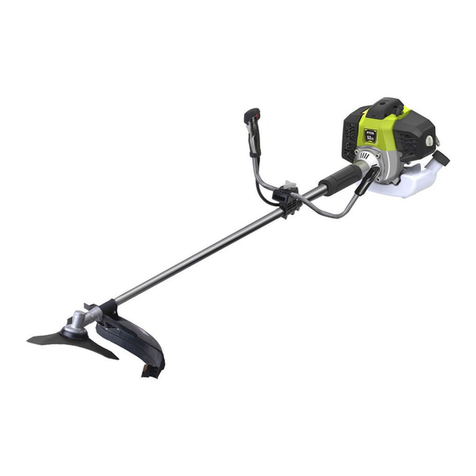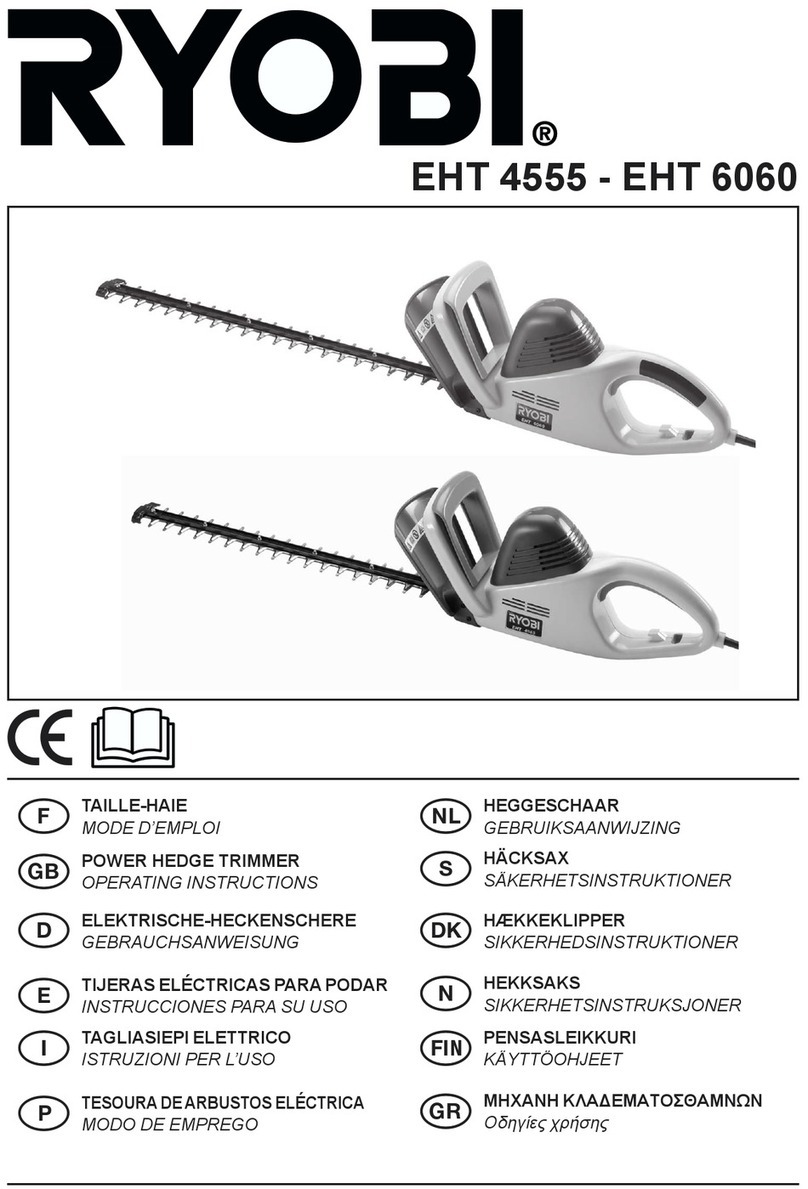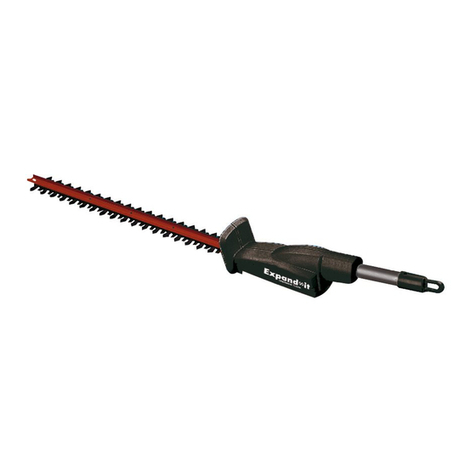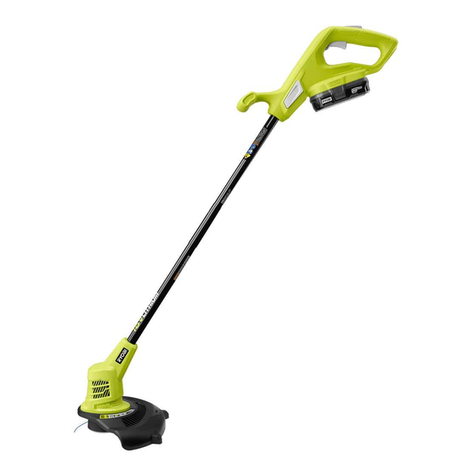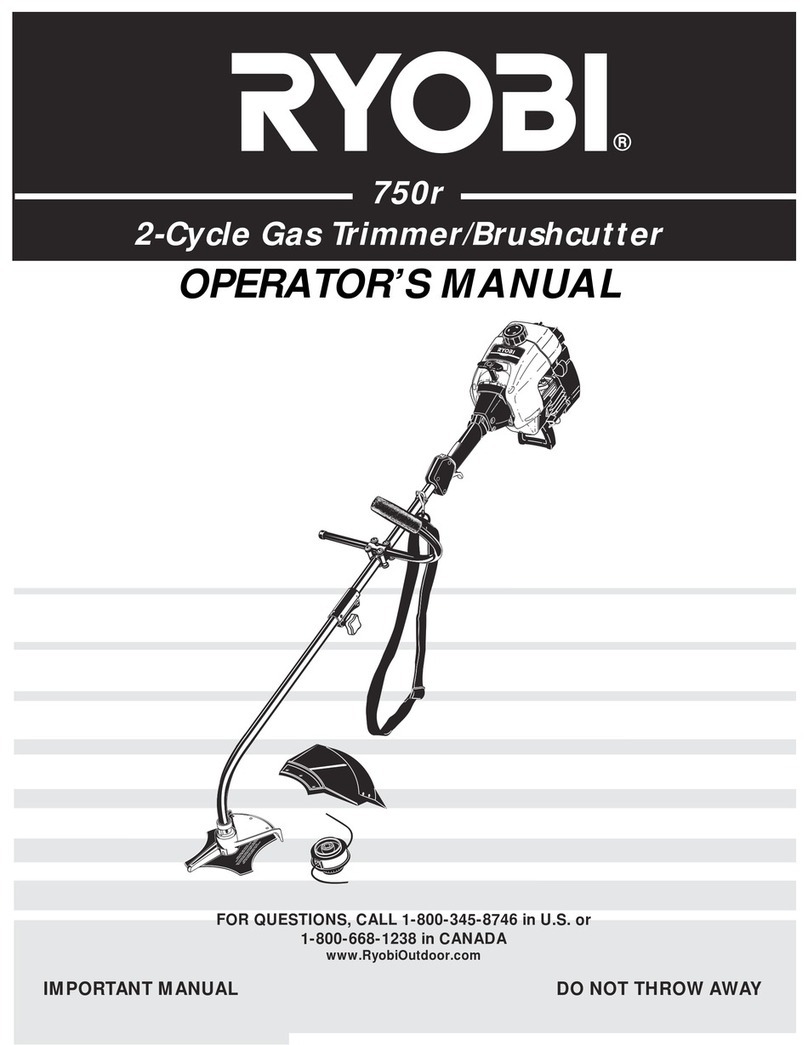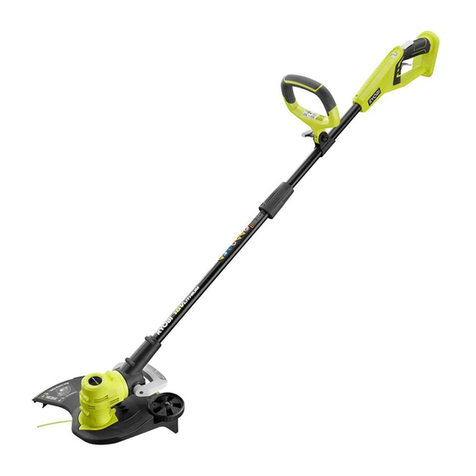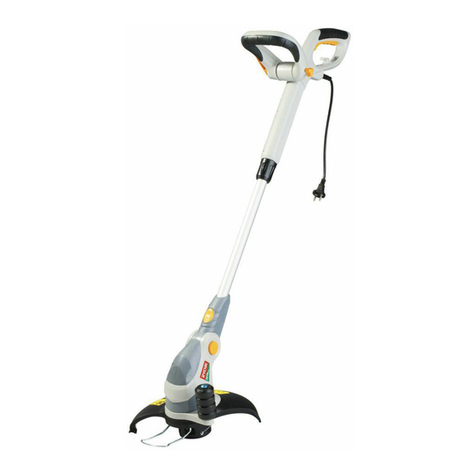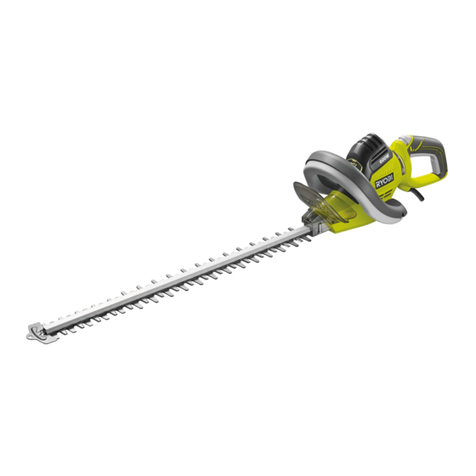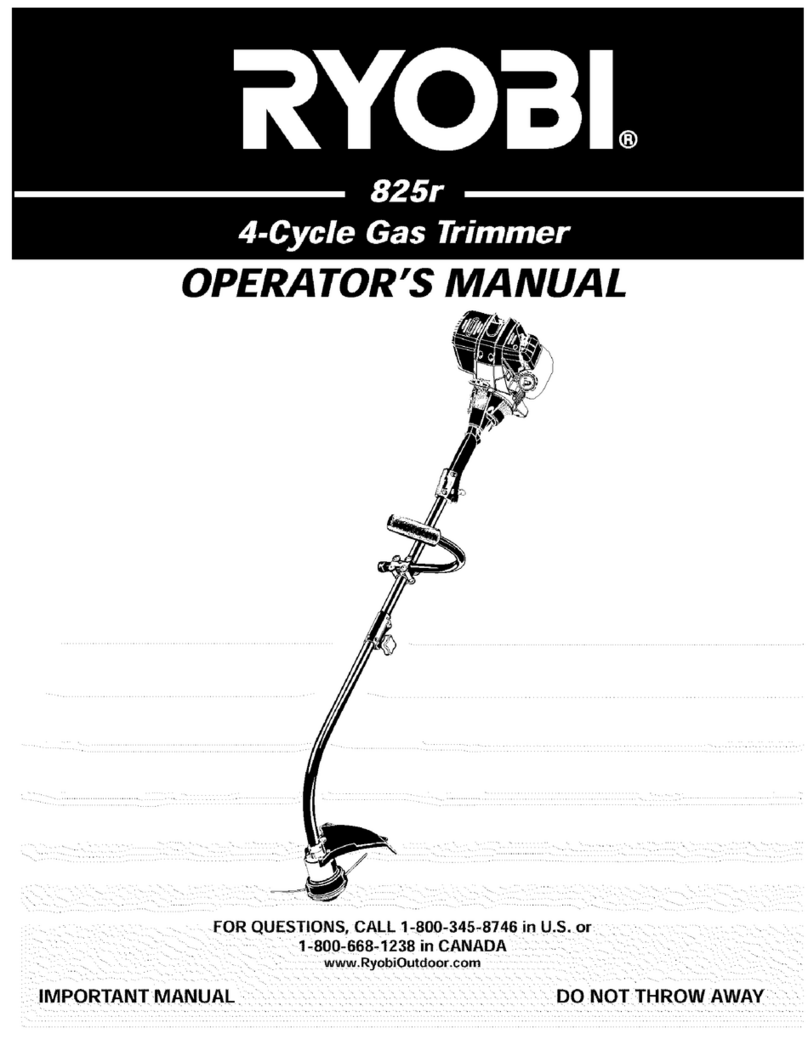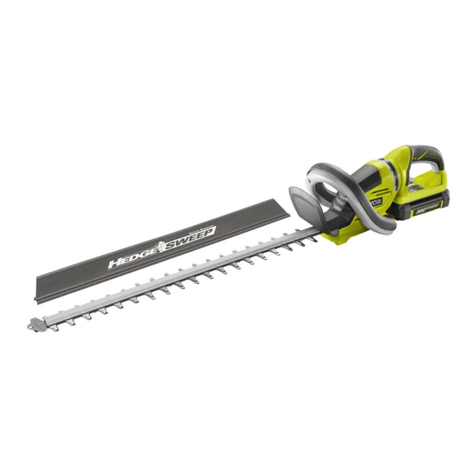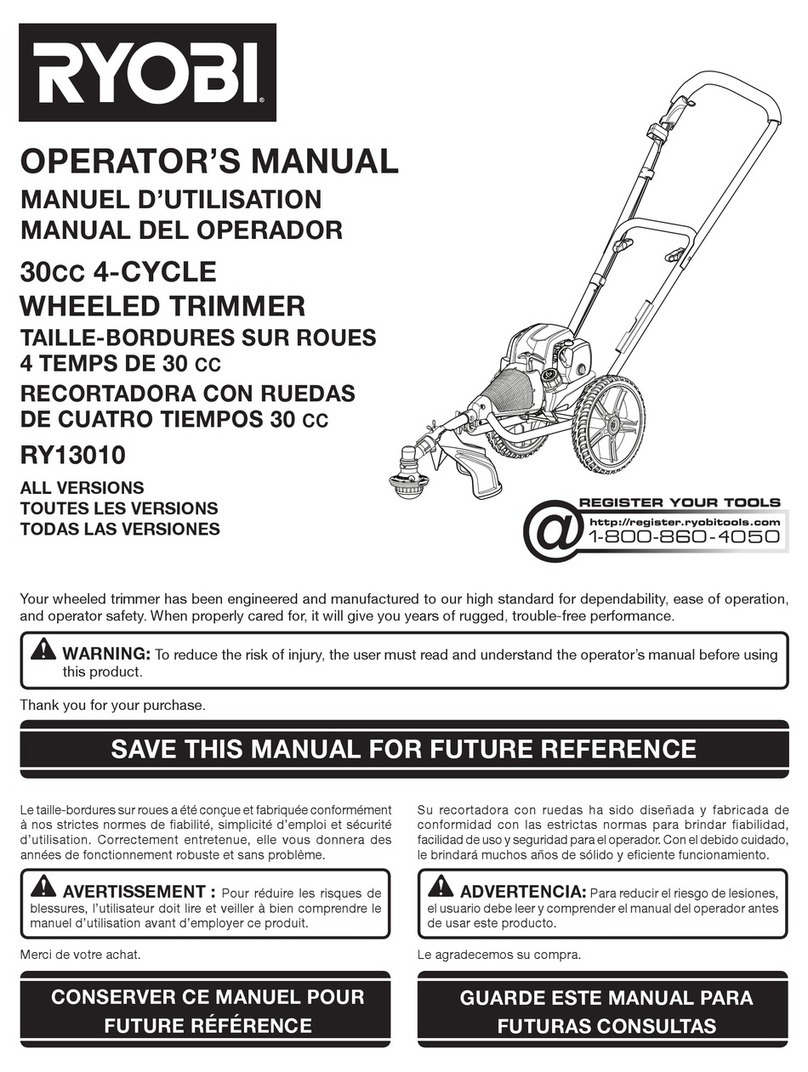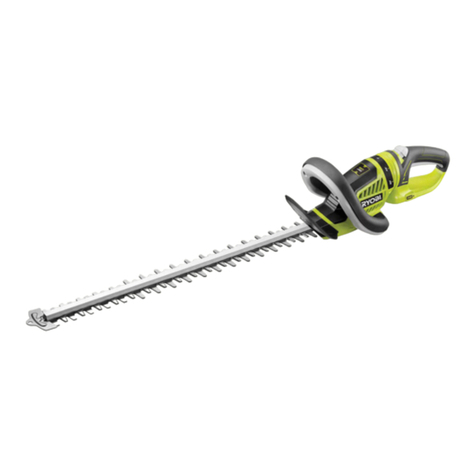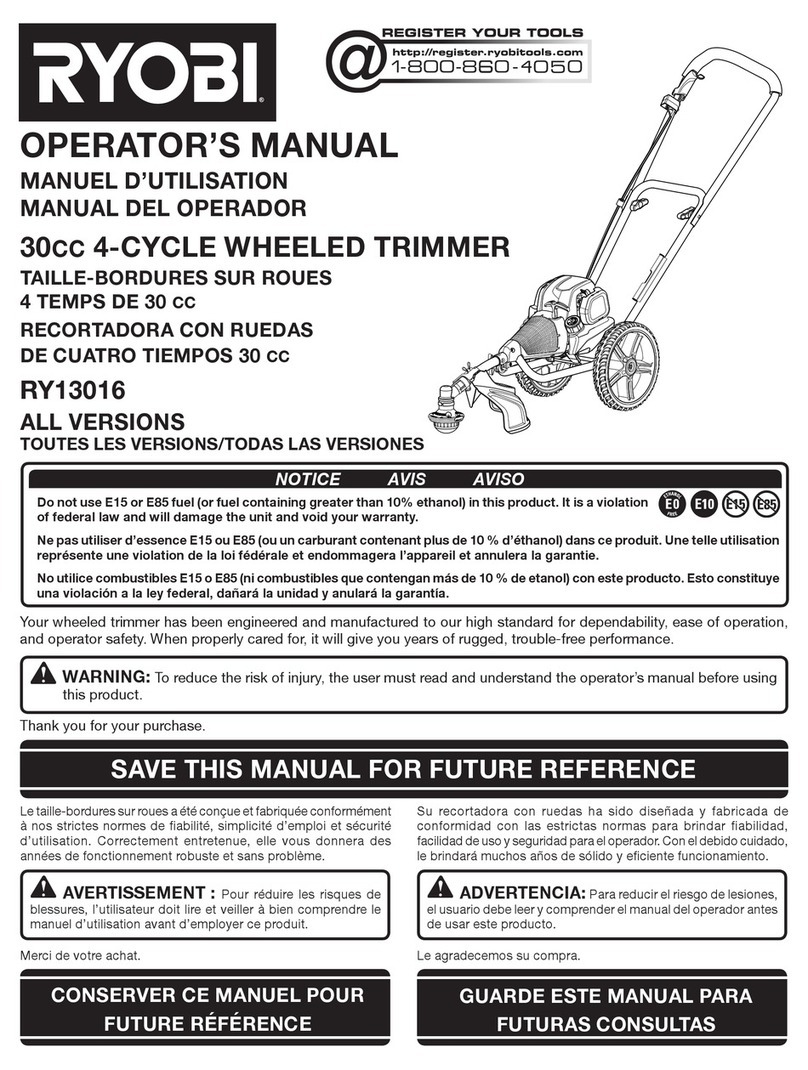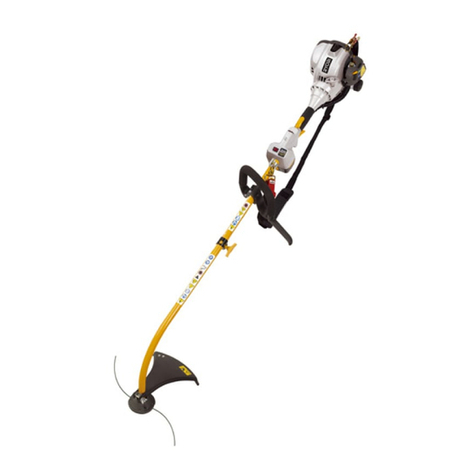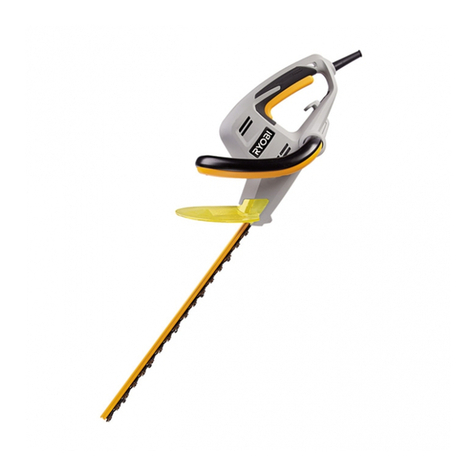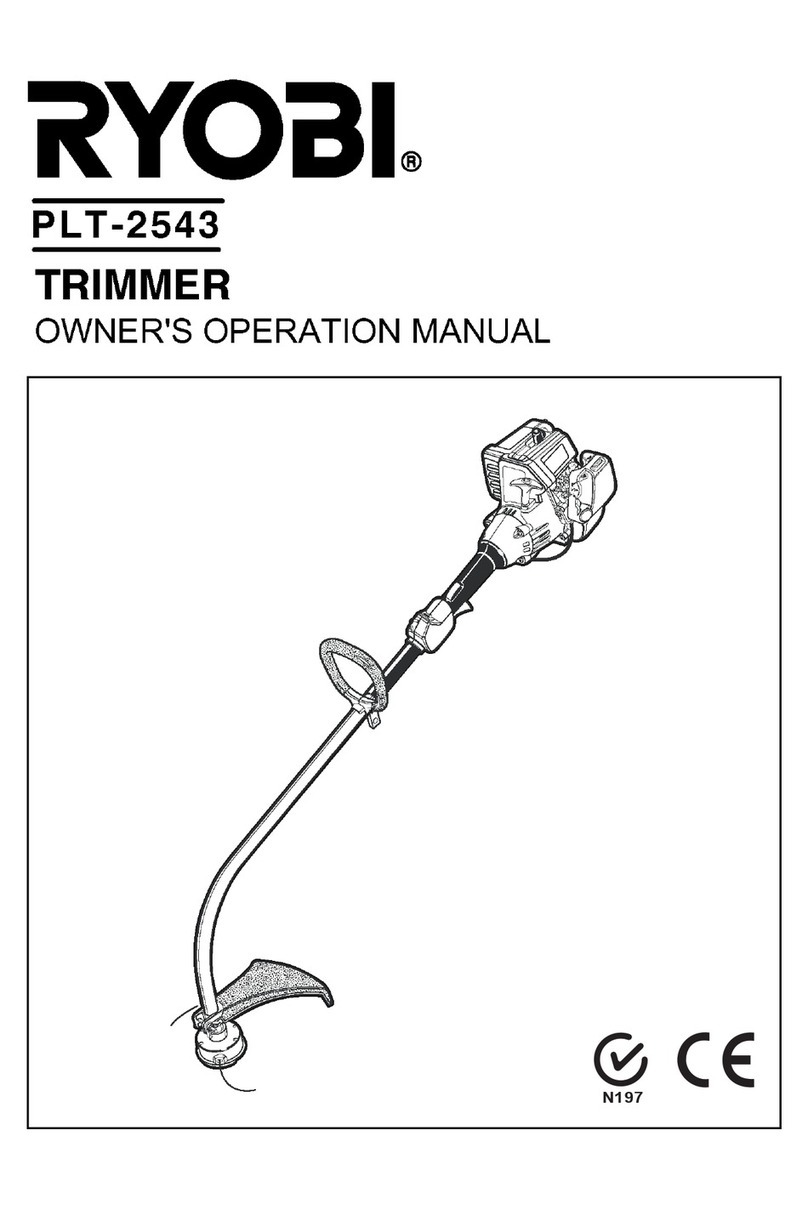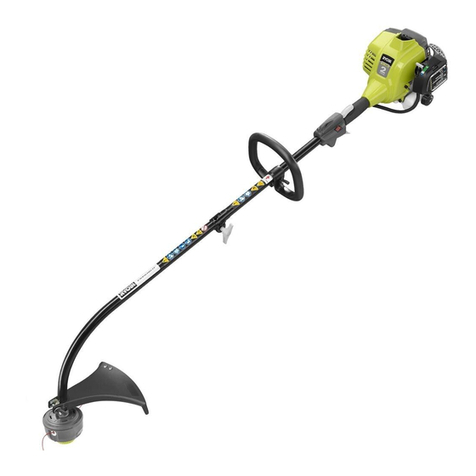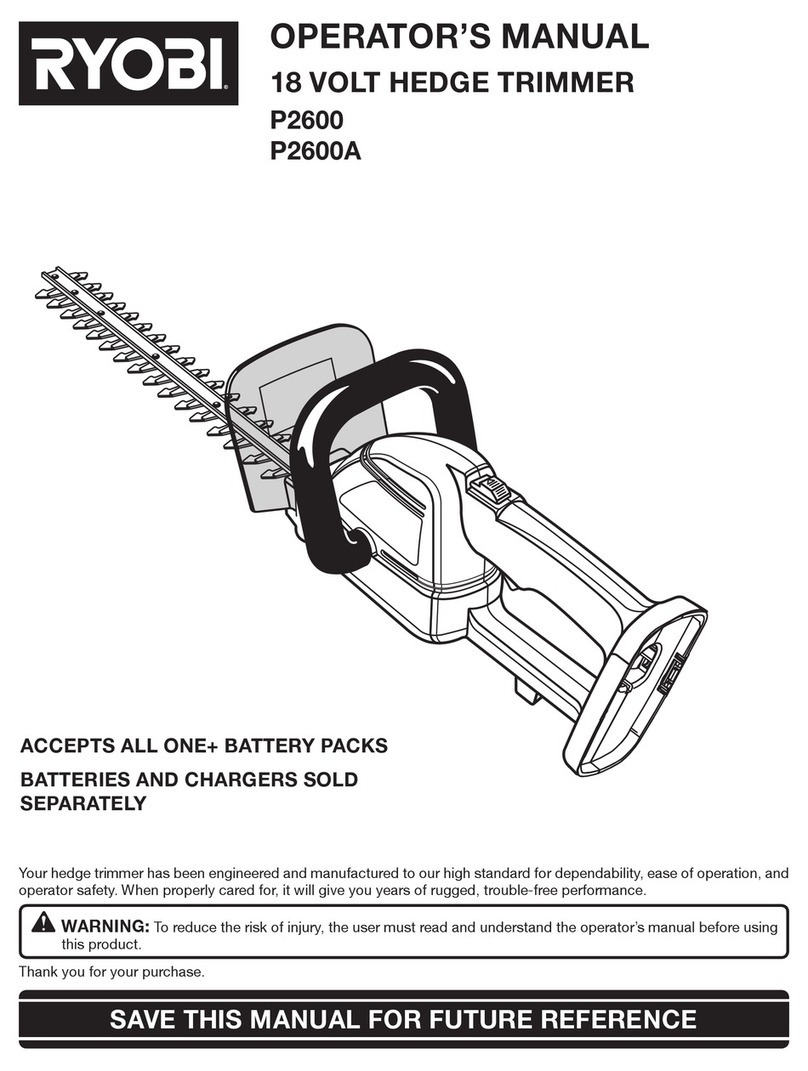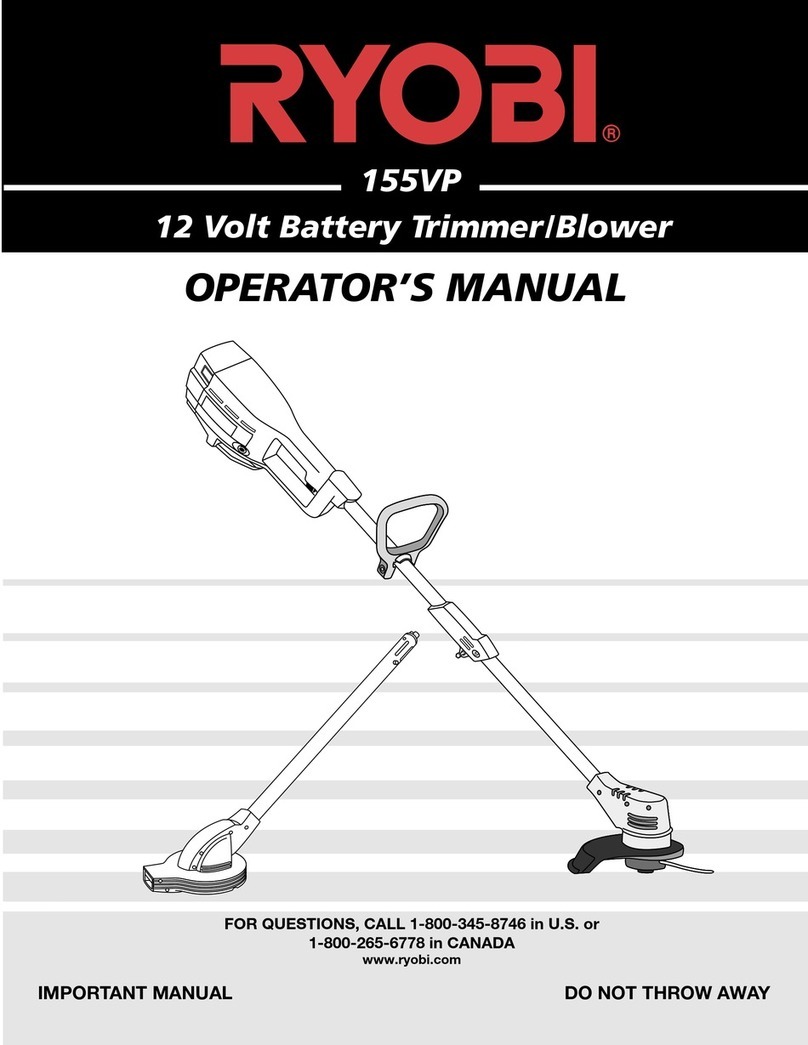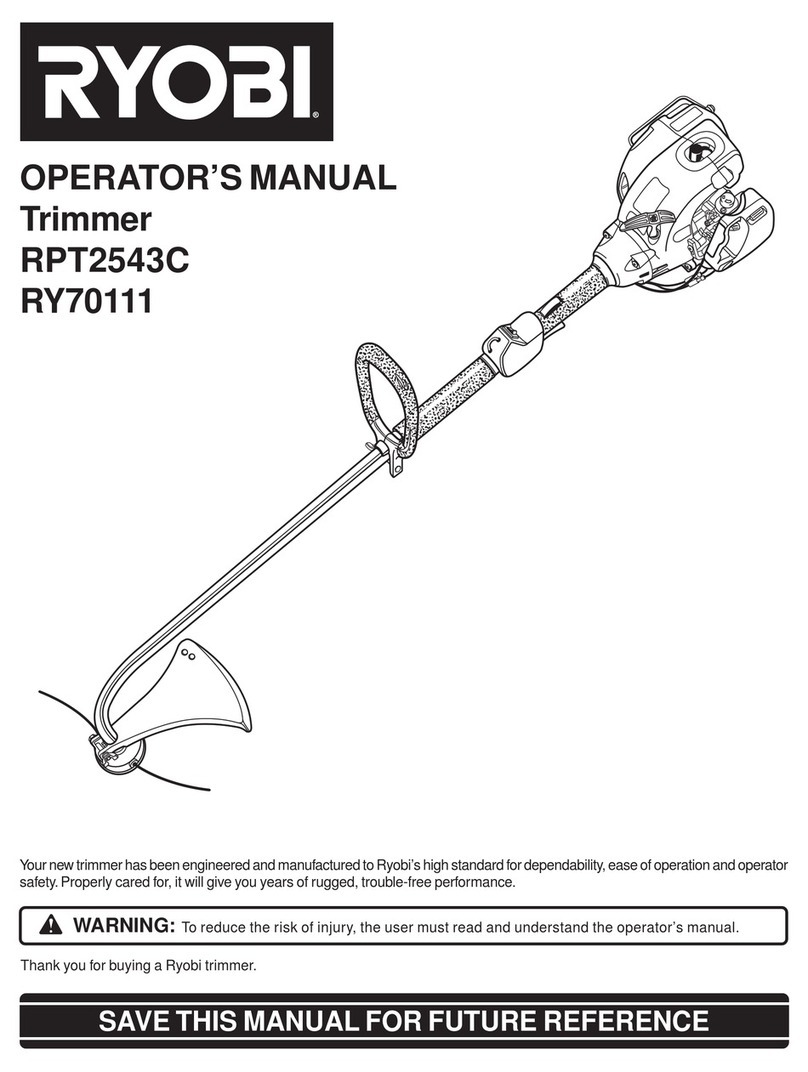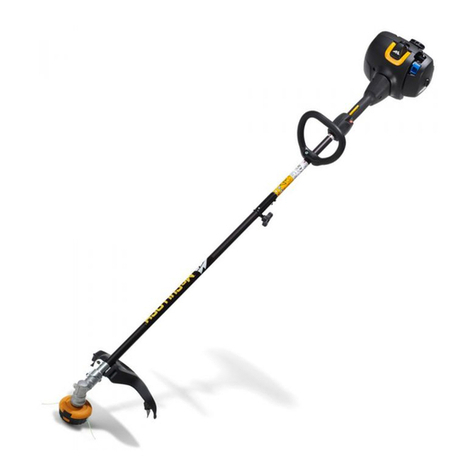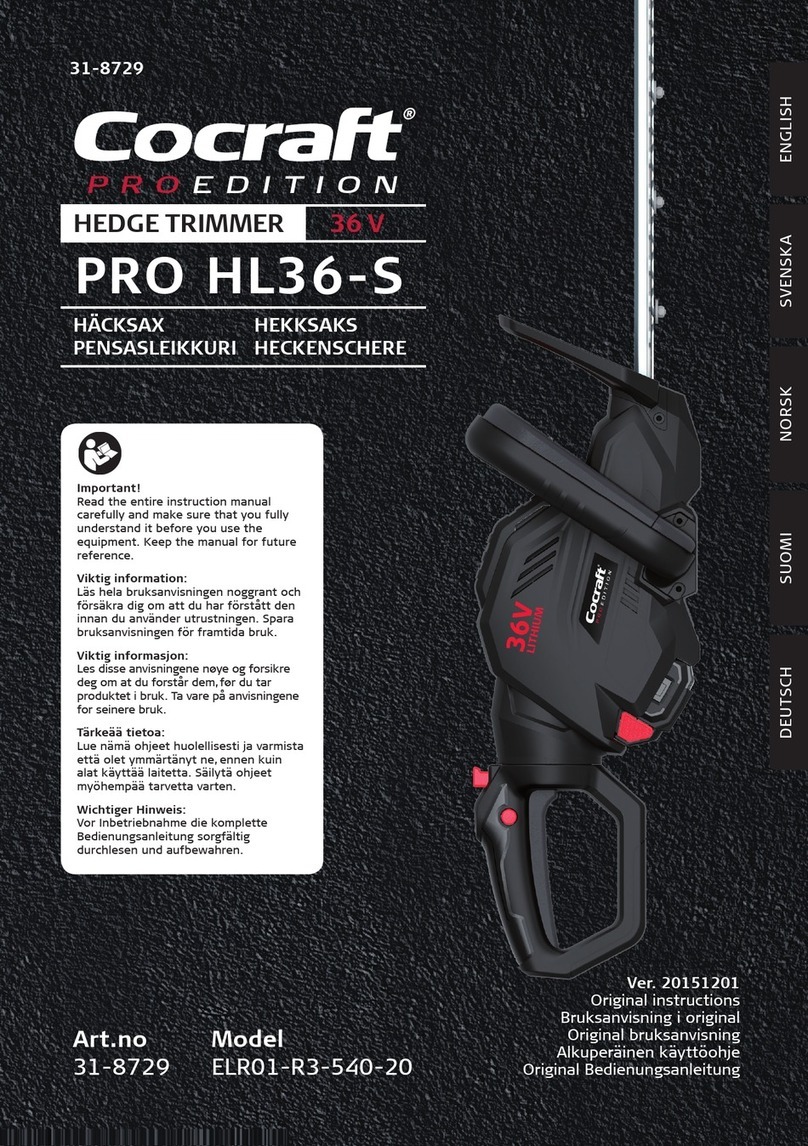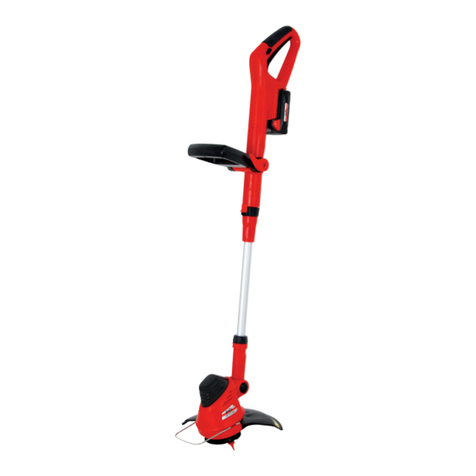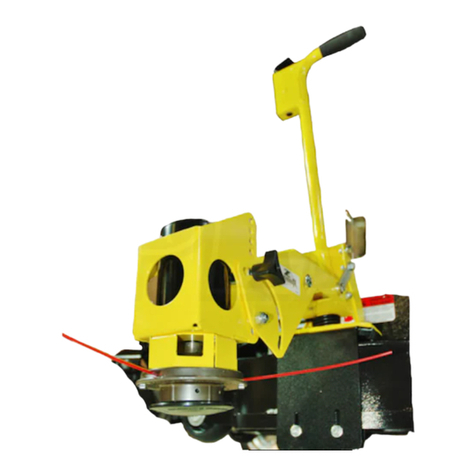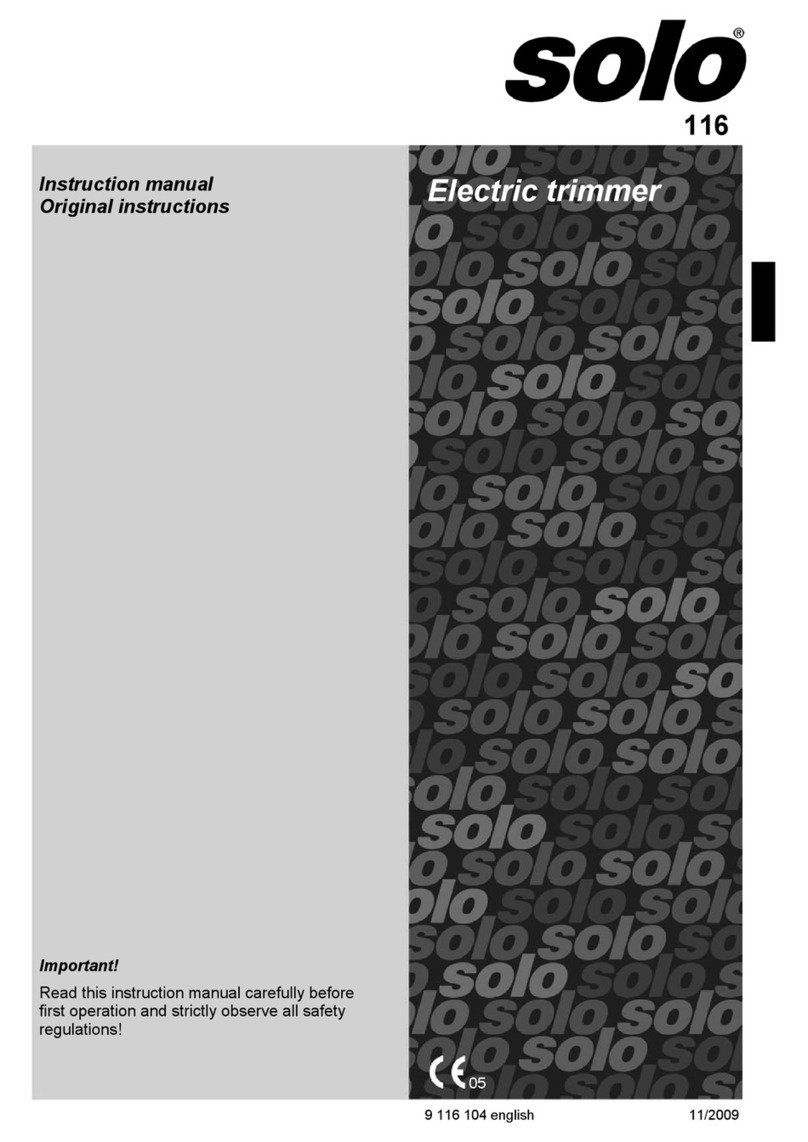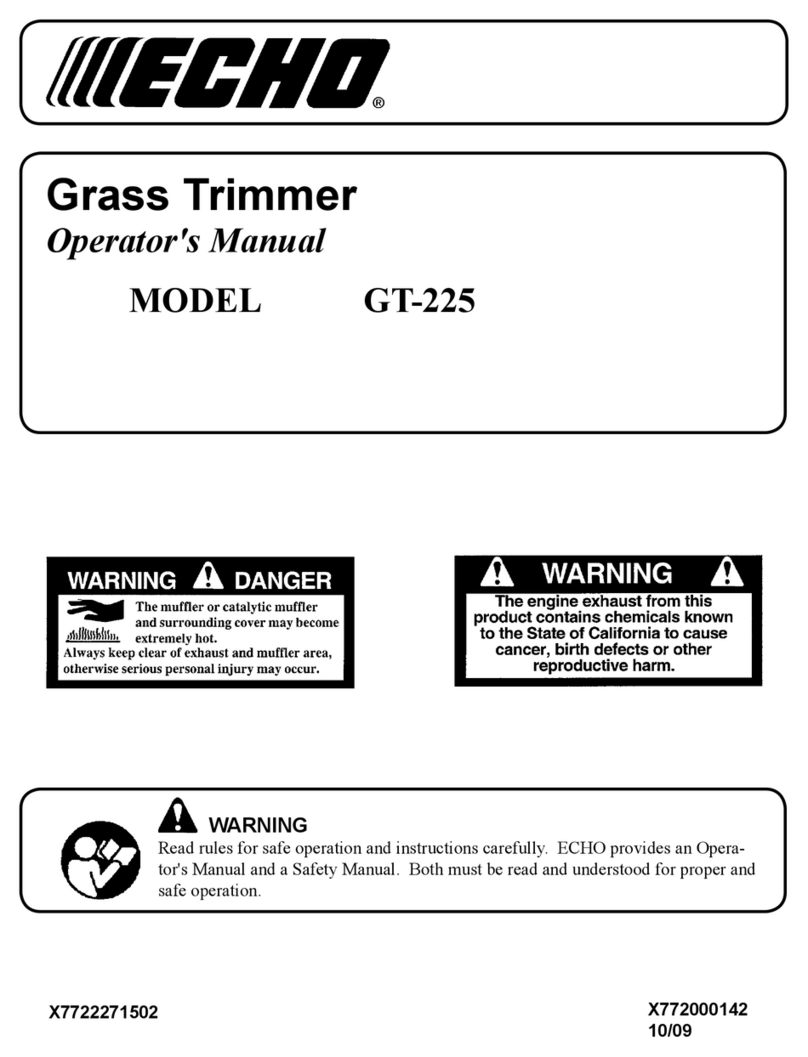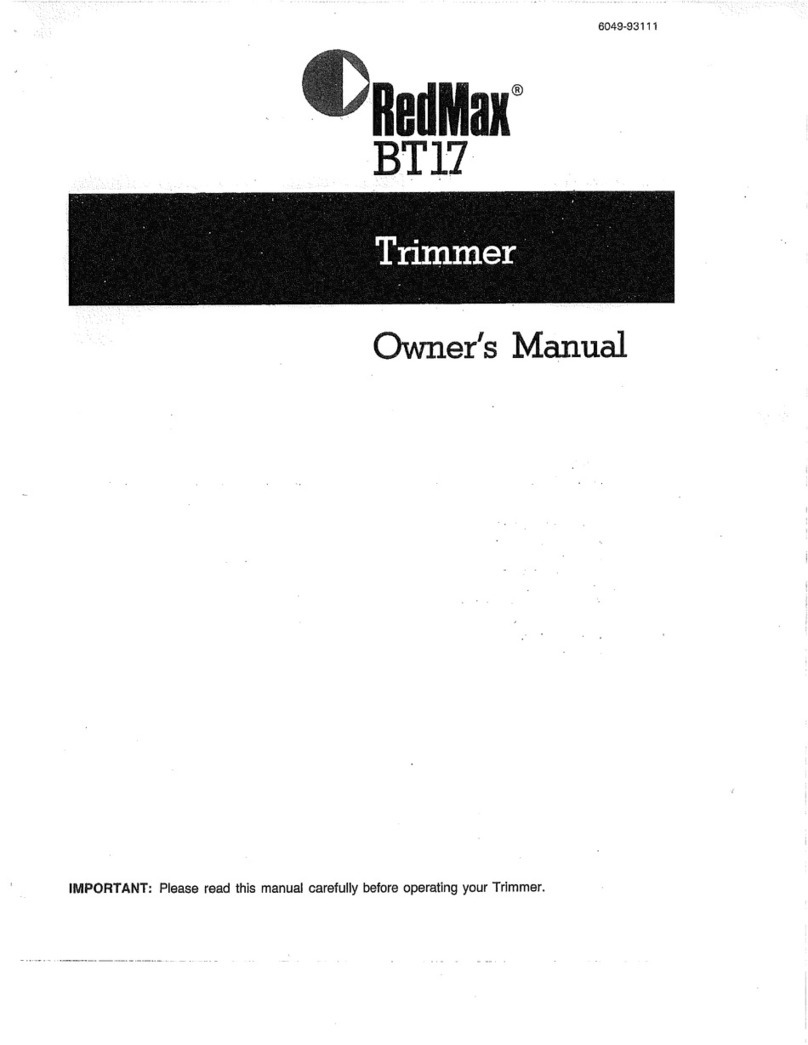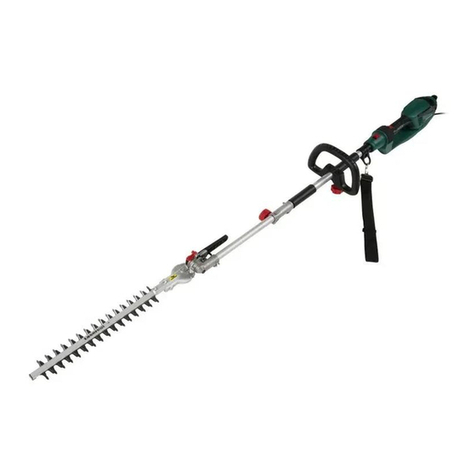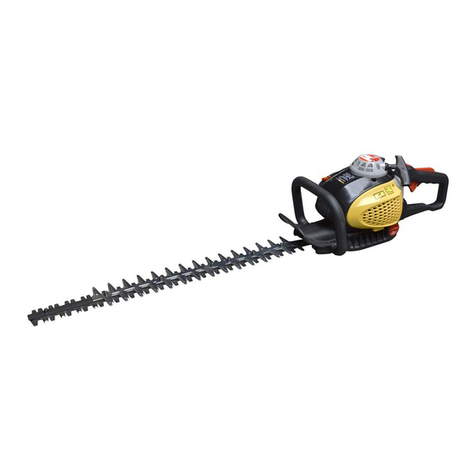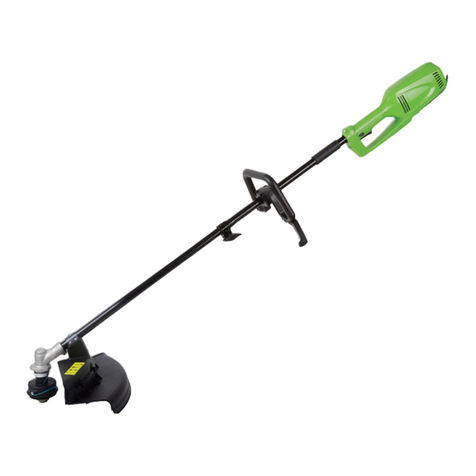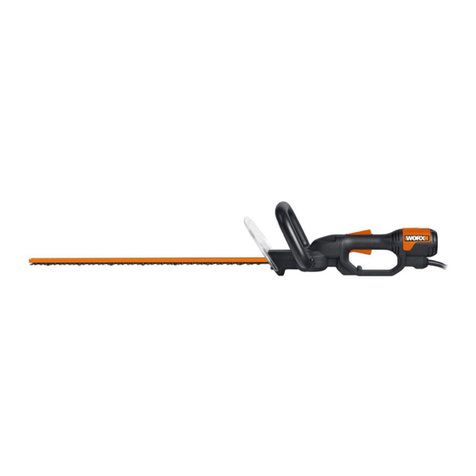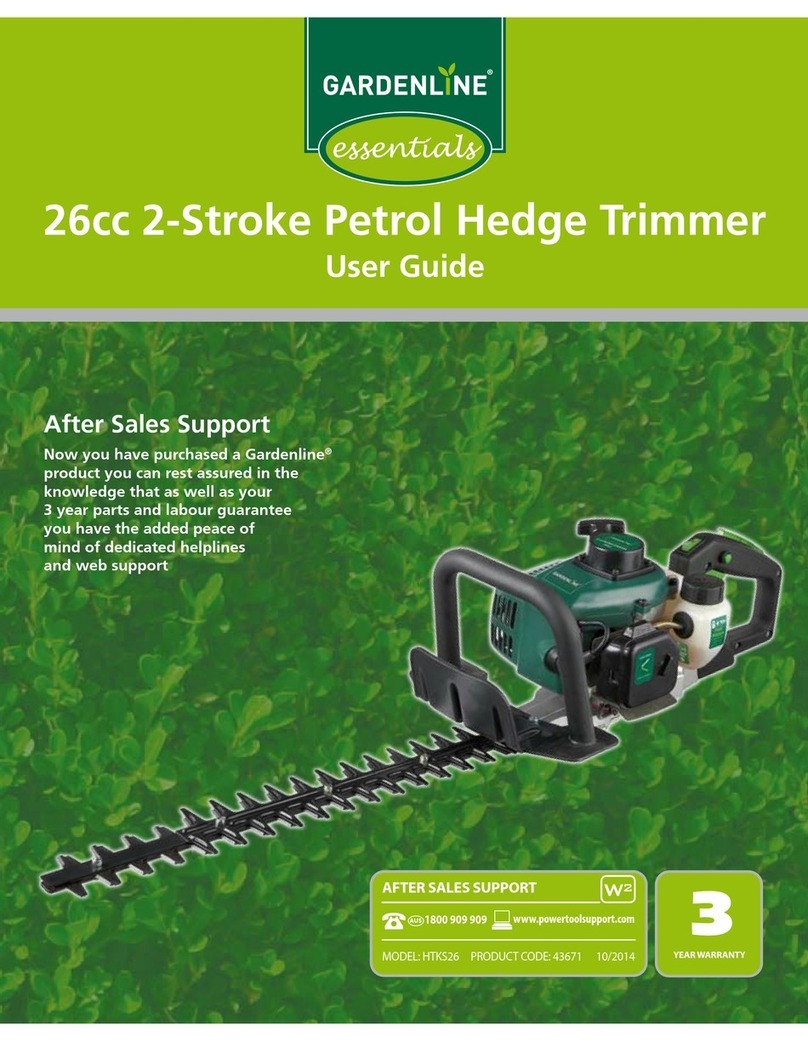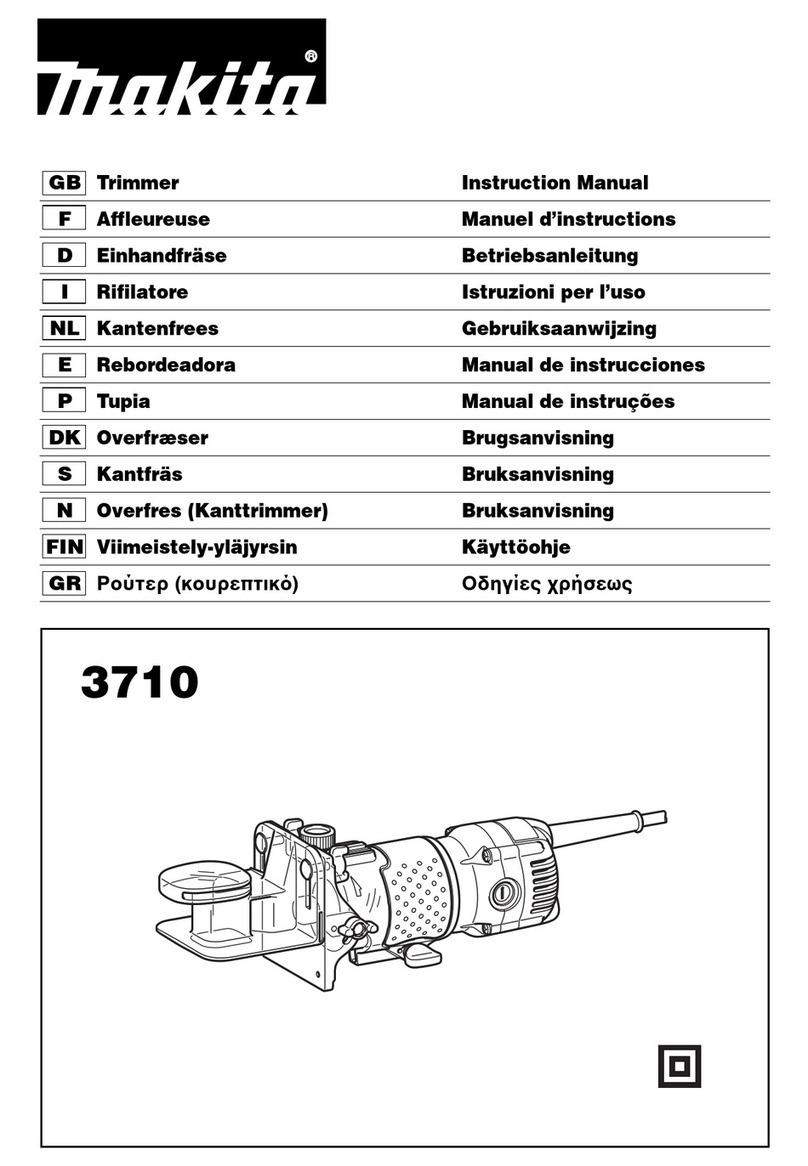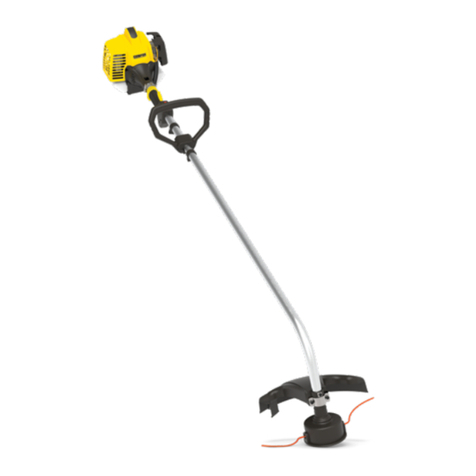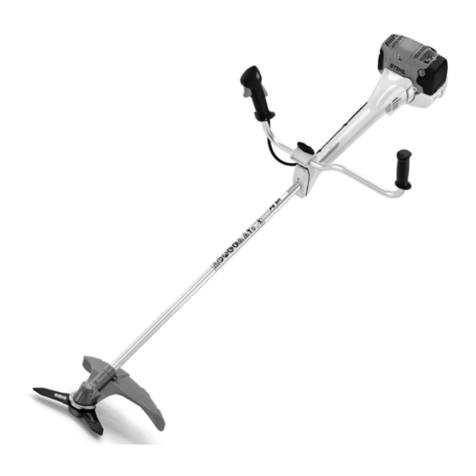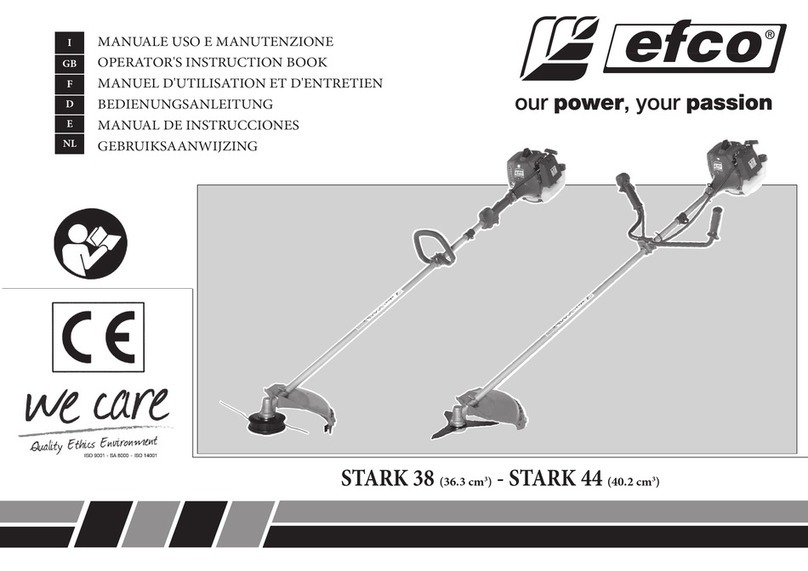
4 — English
Keep all parts of the body away from the cutter blade.
Do not remove cut material or hold material to be cut
when blades are moving. Make sure the switch is off
when clearing jammed material. Blades coast after
turn off. A moment of inattention while operating the
hedge trimmer may result in serious personal injury.
Carry the hedge trimmer by the handle with the cutter
blade stopped. Proper handling of the hedge trimmer will
reduce possible personal injury from the cutter blades.
Hold the power tool by insulated gripping surfaces
only, because the cutter blade may contact hidden
wiring. Cutter blades contacting a “live” wire may make
exposed metal parts of the power tool “live” and could
give the operator an electric shock.
DANGER — Keep hands away from blade. Contact
with blade will result in serious personal injury.
WARNING — Only use with handle and guard properly
assembled to hedge trimmer. The use of the hedge trim-
mer without the proper guard or handle provided may
result in serious personal injury.
Use both hands when operating the hedge trimmer.
Using one hand could cause loss of control and result in
serious personal injury.
Always wear eye protection with side shields marked
to comply with ANSI Z87.1. Following this rule will re-
duce the risk of serious personal injury.
Clear the area to be cut before each use. Remove all
objects such as cords, lights, wire, or loose string which
can become entangled in the cutting blade and create a
risk of serious personal injury.
Before starting the hedge trimmer, make sure the blade
is not in contact with any object.
Stop the unit, remove the battery pack, and make sure
the blade has stopped before setting the unit down.
Never cut any material with a diameter larger than 3/4 in.
Always stop the motor when cutting is delayed or when
walking from one cutting location to another.
Keep unit clean of clippings and other materials. They
may become lodged in the cutting blades.
If hedge trimmer is equipped with a debris remover, do
not use the debris remover as a gripping surface.
Store the unit inside in a dry place, either locked up or up
high to prevent unauthorized use or damage. Keep out
of the reach of children or untrained individuals.
Replace blade cover when unit is not in use.
Never douse or squirt the unit with water or any other
liquid. Keep handles dry, clean, and free from debris.
Clean after each use; see storage instructions.
Secure the unit while transporting.
Battery operated units do not have to be plugged into an
electrical outlet; therefore, they are always in operating
condition. Be aware of possible hazards even when unit
is not operating.
Remove the battery pack before making any adjustments,
cleaning, storing, or removing material from the unit, or
when not in use.
When transporting or storing the hedge trimmer al-
ways fit the cutting device cover.
Use only with charger listed. For use with 18 V nickel-
cadmium and 18 V lithium-ion battery packs. See Tool/
Appliance/Battery Pack/Charger Correlation Supplement
987000-432.
Save these instructions. Refer to them frequently and use
them to instruct others who may use this tool. If you loan
someone this tool, loan them these instructions also.
HEDGE TRIMMER SAFETY WARNINGS
Keep cutting tools sharp and clean. Properly main-
tained cutting tools with sharp cutting edges are less
likely to bind and are easier to control.
Use the power tool, accessories and tool bits etc.
in accordance with these instructions, taking into
account the working conditions and the work to be
performed. Use of the power tool for operations different
from those intended could result in a hazardous situation.
BATTERY TOOL USE AND CARE
Recharge only with the charger specified by the
manufacturer. A charger that is suitable for one type
of battery pack may create a risk of fire when used with
another battery pack.
Use power tools only with specifically designated bat-
tery packs. Use of any other battery packs may create
a risk of injury and fire.
When battery pack is not in use, keep it away from
other metal objects, like paper clips, coins, keys, nails,
screws or other small metal objects, that can make a
connection from one terminal to another. Shorting the
battery terminals together may cause burns or a fire.
Under abusive conditions, liquid may be ejected from
the battery; avoid contact. If contact accidentally
occurs, flush with water. If liquid contacts eyes, ad-
ditionally seek medical help. Liquid ejected from the
battery may cause irritation or burns.
SERVICE
Have your power tool serviced by a qualified repair
person using only identical replacement parts. This will
ensure that the safety of the power tool is maintained.
When servicing a power tool, use only identical re-
placement parts. Follow instructions in the Mainte-
nance section of this manual. Use of unauthorized parts
or failure to follow Maintenance instructions may create
a risk of shock or injury.
GENERAL POWER TOOL SAFETY WARNINGS
